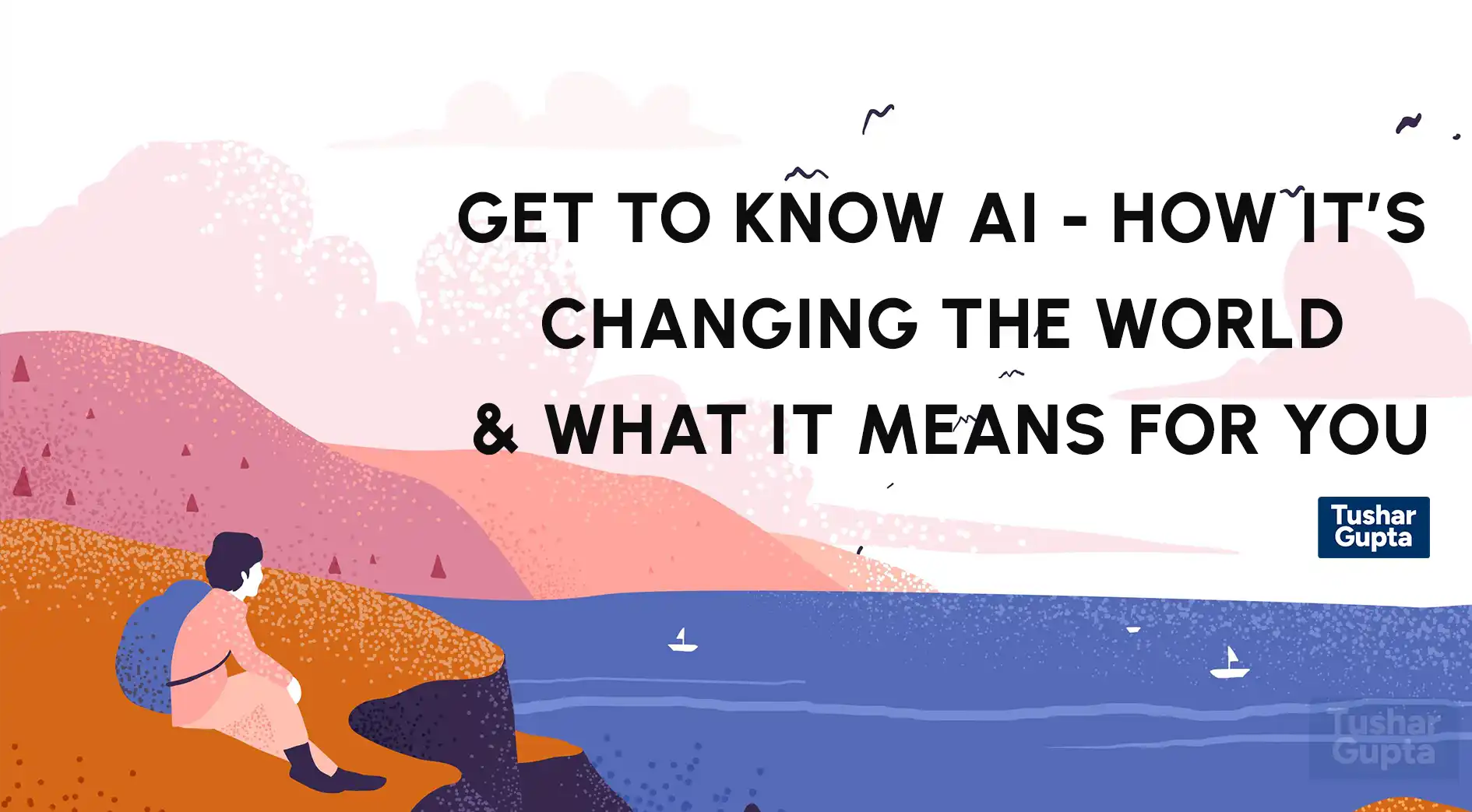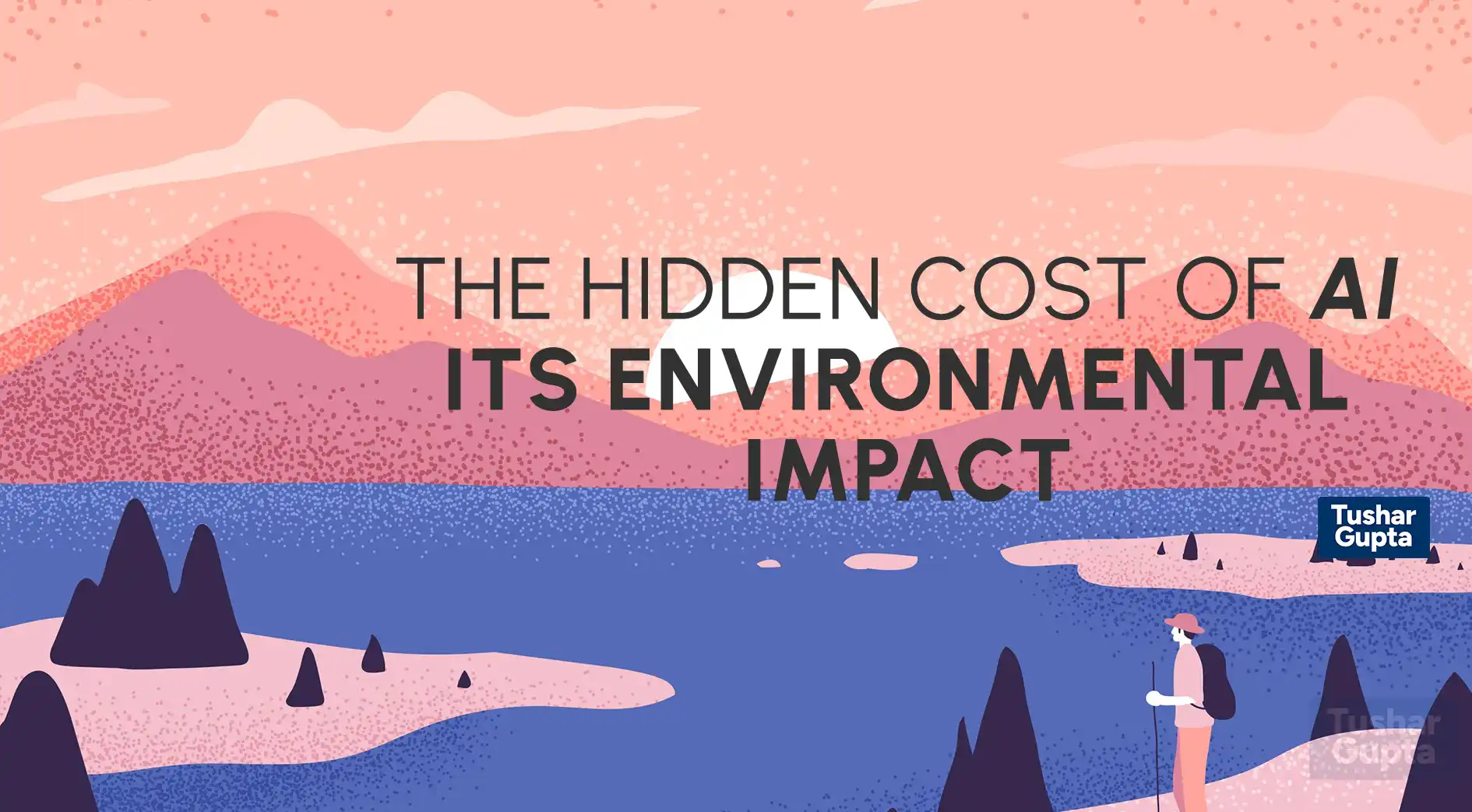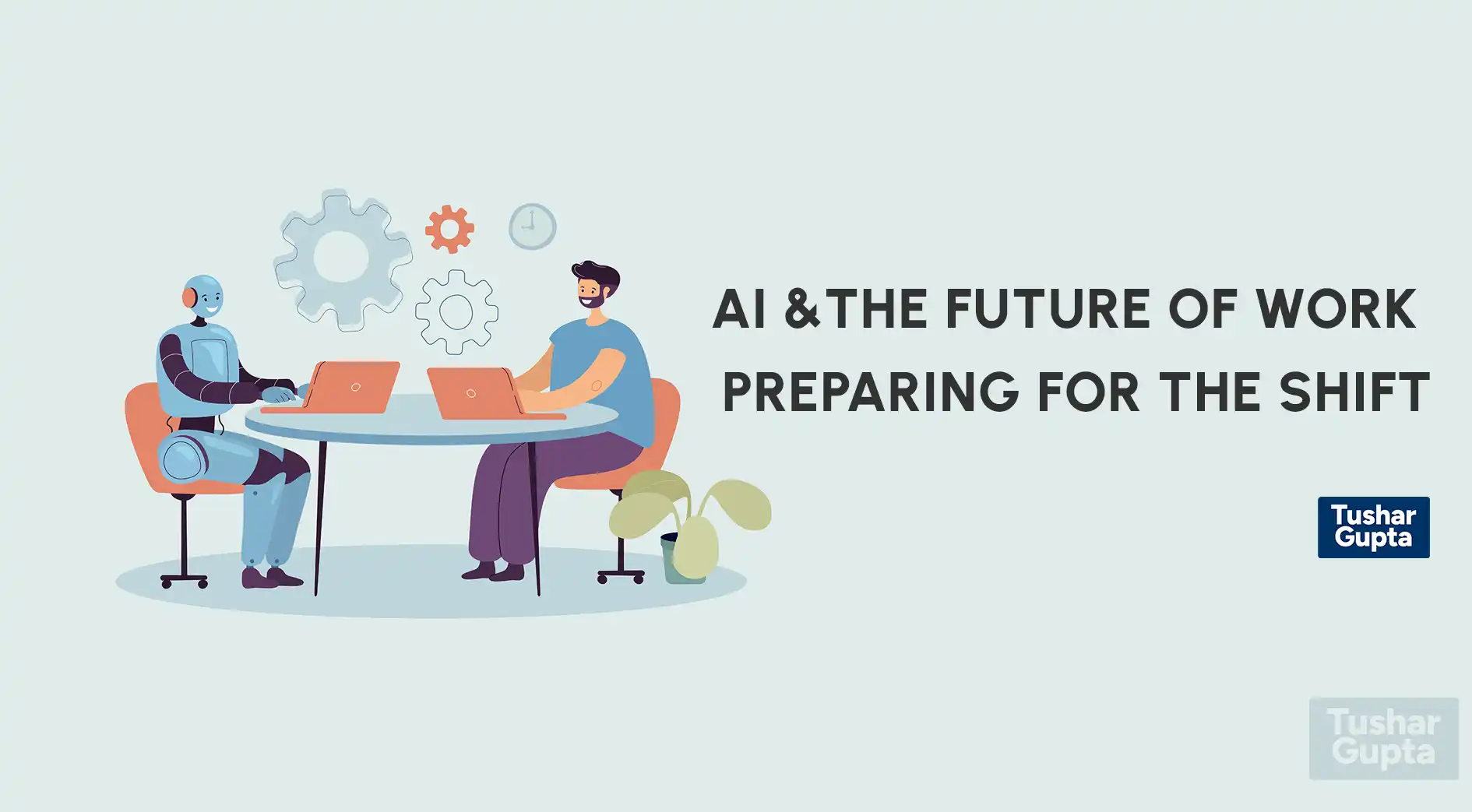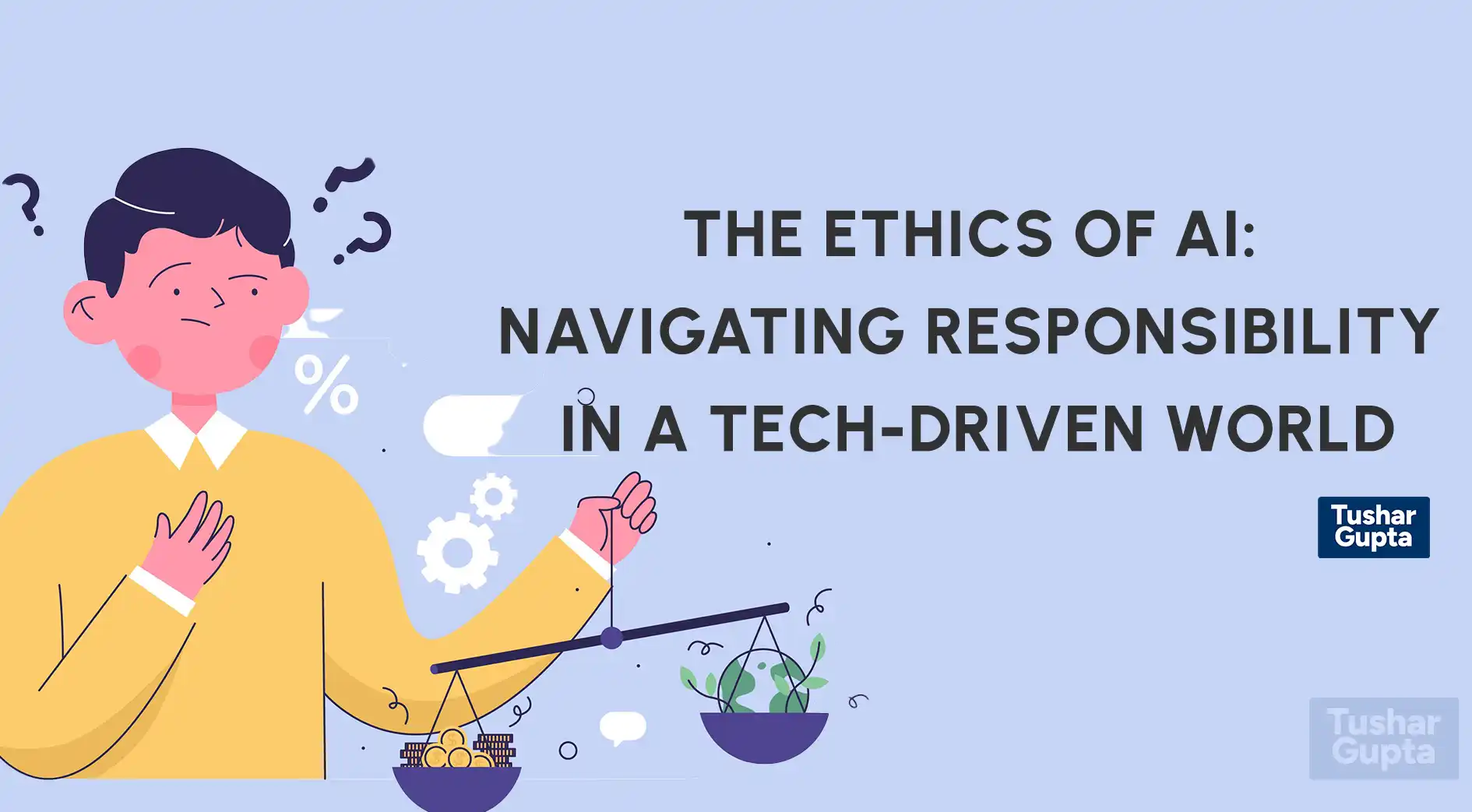Artificial Intelligence (AI) has rapidly evolved from a futuristic concept to a reality that permeates nearly every aspect of our lives. Whether we realise it or not, AI is reshaping industries, enhancing everyday experiences, and challenging our notions of work, creativity, and ethics. AI is also now considered to be the next new General-Purpose Technology. This blog will guide you through the history, the transformative power of AI, how it’s changing the world, and what it means for you as an individual.
What is AI? A Simple Explanation for Everyone
Artificial Intelligence, or AI, is essentially the concept of creating machines that can think and act like humans. It's about building computer systems that can perform tasks that typically require human intelligence, such as understanding language, recognising patterns, solving problems, and even making decisions.
Imagine having a virtual personal assistant that can not only schedule your appointments and order groceries but also suggest new hobbies based on your interests and personality. Or perhaps a smart home system that can not only adjust your thermostat and turn off the lights but also learn your preferences over time and customise your environment accordingly. These are just a few examples of how AI can enhance our daily lives in ways that were previously unimaginable.
AI is not about replacing humans, but rather about augmenting our abilities and making our lives more efficient and enjoyable. It's a powerful tool that can be used to solve complex problems and create new opportunities in a wide range of fields, from healthcare to finance to transportation. For instance, AI-powered medical imaging systems can help doctors detect diseases earlier and more accurately, while AI-driven financial algorithms can help investors make more informed decisions. AI is also being used to develop self-driving cars, which could revolutionise transportation and reduce accidents.
Simply put, AI is going to:
-
Enhance our daily lives: By automating tasks, providing personalised recommendations, and creating new experiences.
-
Augment our abilities: By helping us solve complex problems, make informed decisions, and innovate in various fields.
-
Improve our quality of life: By addressing challenges in areas such as healthcare, finance, and transportation.
A Short History of AI

The history of Artificial Intelligence (AI) is marked by pivotal moments that have shaped its development.
It all began in 1950 with Alan Turing’s proposal of the Turing Test, which laid the foundation for evaluating machine intelligence. Shortly after, the first AI program was developed, and in 1956, AI was formally recognised at the Dartmouth Conference.
The period from 1958 to 1972 saw major early advances, such as the creation of Lisp for AI programming, ELIZA for natural language processing, and Shakey the Robot, the first mobile robot to reason about its actions.
Following this, the AI community experienced two AI winters from 1974 to 1993, when enthusiasm and funding waned due to unmet expectations. However, in 1980, the rise of expert systems sparked new hope for AI applications.
The breakthrough of IBM’s Deep Blue defeating chess champion Garry Kasparov in 1997 demonstrated AI's potential, leading to the AI Renaissance from 2006 to 2020, driven by deep learning advances like Watson, AlphaGo, and GPT-3.
Today, AI continues to evolve, with a growing focus on ethical considerations and its expanding capabilities, such as DALL·E and AlphaFold, transforming fields like art and healthcare.
How AI is changing the world?
AI is transforming numerous industries, reshaping the way businesses operate, how decisions are made, and how people interact with technology. Here are some real-world examples showcasing AI's impact.
Healthcare
AI tools like Google's DeepMind and IBM Watson are used to detect diseases earlier and with greater accuracy. For instance, AI systems have been developed to diagnose cancers through image analysis better than traditional methods. AI-powered diagnostic tools analyze medical images (X-rays, MRIs) with exceptional accuracy, leading to earlier and more precise disease detection.
Virtual nursing assistants provide personalized patient care, monitoring vital signs and answering questions, improving efficiency and access to healthcare.
Drug Discovery: AI models are accelerating drug discovery, like AlphaFold, which predicts protein structures, helping researchers develop treatments faster.
Retail and E-commerce
Personalized Shopping: Amazon and Netflix use AI to provide personalized recommendations based on user behavior, increasing sales and improving customer satisfaction.
Inventory Management: AI-powered predictive analytics are used to optimize stock levels in stores. Walmart and Zara are employing AI for real-time inventory tracking and efficient restocking.
Autonomous Vehicles
Self-driving Cars: Companies like Tesla and Waymo are leading the development of AI-powered autonomous vehicles. AI enables cars to analyze real-time data from cameras and sensors to navigate and make decisions without human intervention.
Public Transportation: AI is being used in cities like Singapore to optimize public transport routes and schedules based on traffic conditions, improving efficiency and reducing commute times.
Finance
Fraud Detection: AI is playing a crucial role in financial institutions by detecting fraudulent activities. For instance, Mastercard and PayPal use AI models to spot suspicious transactions and reduce fraud.
Algorithmic Trading: Hedge funds and investment firms use AI-driven algorithms to analyze market data and execute high-speed trades, which often outperform traditional traders.
Agriculture
Precision Farming: Farmers are using AI-powered drones and sensors to monitor crop health, manage irrigation, and predict yields. Companies like John Deere have developed AI-driven machinery for autonomous planting and harvesting.
Food Supply Chain: AI is improving food distribution by analyzing weather patterns, supply chains, and consumer demand to reduce waste and enhance efficiency.
Education
Personalized Learning: AI-based tools, such as Coursera and Duolingo, adapt to individual learning styles, offering personalized content to students. This helps learners achieve better outcomes at their own pace.
Automated Grading: AI systems are used to automate grading tasks, allowing teachers to focus more on student engagement and less on administrative duties.
Entertainment
Content Creation: AI is now generating music, art, and video. For example, OpenAI’s DALL·E generates images from textual descriptions, while AI-generated deepfake videos are becoming a new form of entertainment and creativity.
Film Production: Studios like 20th Century Fox use AI to predict box office success based on factors like movie trailers, cast, and genre, aiding decision-making in production.
Closing Remarks
AI is reshaping our world across numerous domains. From healthcare and transportation to education and environmental protection, AI-driven innovations are improving efficiency, safety, personalisation, and accessibility.
While challenges and ethical considerations persist, the potential benefits of AI are vast, offering a glimpse into a future where technology empowers us to overcome limitations and solve complex problems in unprecedented ways.
AI is not merely a futuristic concept; its real-world applications are transforming industries and improving lives today. Embracing AI responsibly, while addressing its ethical implications, will be crucial in harnessing its full potential for the betterment of society.




